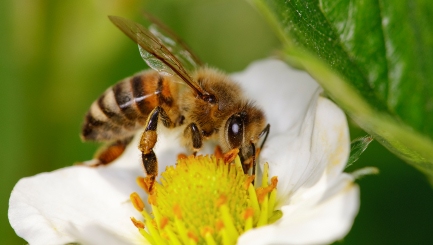Pesticides That Pose Threat to Bees Escape Ban
 A recent European ban on widely-used insecticides means bees are still unsafe from harm, with the toxic chemicals posing a huge threat the bee population. There was a proposed two-year suspension on the use of neonicotinoids following the European Food Safety Authority stating that they considered the use of these chemicals an unacceptable risk. However, many nations, including Germany and the UK, have not voted for the ban to be put in place. The result of the proposal has left scientists, politicians and environmental campaigners very disappointed.
A recent European ban on widely-used insecticides means bees are still unsafe from harm, with the toxic chemicals posing a huge threat the bee population. There was a proposed two-year suspension on the use of neonicotinoids following the European Food Safety Authority stating that they considered the use of these chemicals an unacceptable risk. However, many nations, including Germany and the UK, have not voted for the ban to be put in place. The result of the proposal has left scientists, politicians and environmental campaigners very disappointed.
Around three quarters of today’s global food crops rely on insects and bees to fertilise their flowers – if the bee population declines, this could have a big impact on the propagation of farmers’ crops. Conservationists state that the loss of bees may not seem significant to us, but in actual fact it impacts heavily on farming losses and crucial pollination. The proposal was to ban the use of three neonicotinoids on corn, rape seed, carrots, apples and strawberries, among other crops, for two years in order to see what effect it had. After this time, it would be reviewed and reassessed. If the EC decides to appeal the decision, it could still be enforced within months of this failed ban.
With people taking a more proactive approach to environmental issues, from the rise in people opting for organic produce to global warming initiatives, it’s likely that issues such as this will become more publicly discussed and promoted. As the public becomes better educated in the foods they eat, the importance of renewable sources and the impact it all has on the environment, proposals such as this one could gain better backing from campaigners and the public alike. It is the hope that in future, this type of environmental issue will become more mainstream.


Comments are closed.